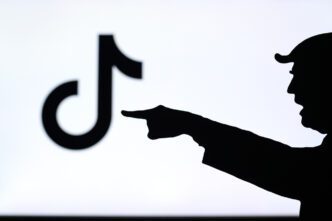Executive Summary
The Story So Far
Why This Matters
Who Thinks What?
A proposed agreement to prevent TikTok from becoming inaccessible in the United States involves significant investments from a consortium of US-based venture capital firms, private equity funds, and tech companies. These investors would establish a new US entity to manage the app’s domestic operations, according to sources familiar with the framework who spoke to CNN. The deal, largely mirroring a previous proposal to President Trump in April, was negotiated by US and Chinese officials in Madrid this week and is expected to be finalized during a phone call between President Trump and Chinese leader Xi Jinping on Friday.
Deal Structure and Key Players
The new consortium, which is anticipated to acquire an approximately 80% stake in TikTok’s US assets, includes prominent firms such as Oracle, Andreessen Horowitz, and Silver Lake. Chinese shareholders are expected to retain the remaining 20%. The new US-based company would be overseen by a majority-US board, which will include a member appointed by the Trump administration.
Oracle executive chairman Larry Ellison, a known supporter of President Trump, has been widely associated with discussions to acquire TikTok’s US assets. Oracle already manages TikTok’s US data, a relationship established in 2020, and had previously reached a deal with the first Trump administration to purchase the app, though that agreement was ultimately blocked.
Regulatory Context and Negotiations
The framework discussed in Madrid addresses a bipartisan law, signed by former President Joe Biden, which prohibits China from holding more than a 20% stake in TikTok’s US assets. This aligns with President Trump’s long-standing objective to transfer control of TikTok’s US operations from Chinese ownership to an American-led investor group.
The negotiations faced significant hurdles, including President Trump’s “Liberation Day” tariffs on Chinese goods, which initially stalled discussions after an American-led investor group had largely been organized by April. However, following a reduction in tariffs and renewed engagement, both President Trump and President Xi expressed interest in restarting TikTok discussions.
Trump’s Leverage and National Security
US Treasury Secretary Scott Bessent confirmed that President Trump’s willingness to allow TikTok to “go dark” in the United States was a pivotal factor in advancing the deal. Bessent told CNBC that this firm stance ultimately persuaded China to relent, allowing for progress on the long-sought agreement.
Addressing national security concerns was a critical component of the negotiations. Bessent emphasized that the US was unwilling to compromise on security in favor of the deal, stating that agreements were reached on measures that would not impact national security. President Trump on Tuesday signed an executive order extending the TikTok ban by another three months, an action that could be superseded if the deal is finalized.
Path Forward
While the framework is still subject to change ahead of the anticipated phone call between President Trump and President Xi, US officials view a TikTok agreement as a crucial step toward arranging a potential meeting between the two leaders. Treasury Secretary Bessent praised President Trump’s leadership in the negotiations, anticipating that the deal’s terms and investors will be publicly revealed in the coming days or weeks.








